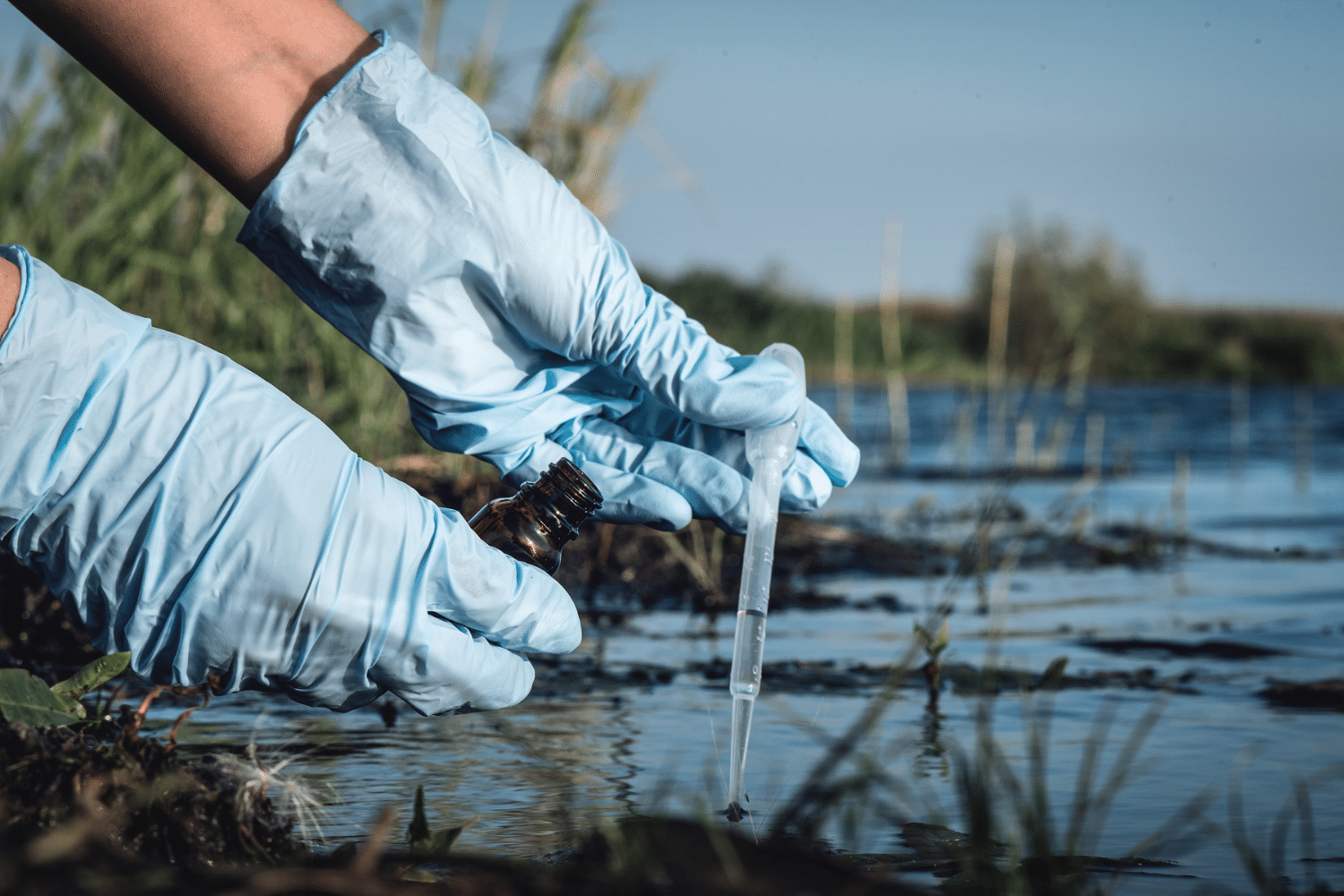Pursuing an online degree in environmental science provides the flexibility to balance education with your personal life. These programs are affordable, widely recognized, and designed to open doors to various career opportunities in the environmental sector. This comprehensive guide will cover the best programs available for 2024, key factors in choosing a program, and the benefits of accreditation.
Key Takeaways
- An online environmental science degree offers flexibility, cost savings, and a diverse range of courses, making it an attractive option for students balancing education with other commitments.
- Accreditation plays a crucial role in ensuring program quality and enhances career prospects for graduates; both institutional and programmatic accreditations are important in selecting a program.
- Graduates of online environmental science programs have access to a wide range of career opportunities with competitive salaries and growth potential, reflecting the interdisciplinary nature of the field.
Why Choose an Online Environmental Science Degree?

An online environmental science degree provides unparalleled flexibility, enabling students to balance education with work and personal commitments. This is especially beneficial for those already in the field or with other obligations. Online learning allows for studying at your own pace and schedule, making time management more manageable.
Another advantage is the cost savings associated with online programs. Traditional on-campus programs can be costly, with expenses like transportation, housing, and course materials. Online programs often reduce these costs, making education more affordable. Additionally, eliminating commuting time frees up more hours for study or personal interests.
Online programs also offer a broader range of courses, allowing students to tailor their education to specific interests and career goals. Whether interested in environmental health, pollution science, or conservation, online programs provide the flexibility to explore these areas in depth.
In summary, an online environmental science degree offers flexibility, cost savings, and diverse course options, making it an attractive choice for advancing in the field. Next, we’ll explore the importance of accreditation and its impact on educational and career prospects.
Accreditation Importance for Online Environmental Science Degrees
Accreditation is crucial when selecting an online environmental science degree program. It ensures that the program meets established standards of quality and rigor, essential for your education and career prospects. Accredited programs are recognized for their quality, giving you confidence in your education.
Employers often view graduates from accredited programs more favorably, recognizing the quality education that aligns with industry standards. This can enhance job prospects and career advancement opportunities. Moreover, an accredited degree ensures professional recognition and respect.
Accreditation also affects eligibility for federal financial aid and the ability to transfer credits between institutions for community college transfer students. It provides assurance that other institutions and employers will recognize your degree, crucial for further education or career changes.
Now, let’s explore the two main types of accreditation: institutional and programmatic.
Institutional Accreditation
Institutional accreditation ensures the overall quality of the institution offering the degree. It establishes eligibility for federal aid, facilitates credit transfers, and enhances professional credentials and employment prospects. Accreditation signifies that the institution meets quality standards, providing a strong foundation for its degree programs.
For online environmental science students, institutional accreditation ensures high educational standards. This assurance is critical for peace of mind and future career prospects. Employers and educational institutions recognize degrees from accredited institutions, opening doors to various opportunities.
In summary, institutional accreditation is fundamental for choosing a quality online environmental science program. It ensures rigorous standards, enhancing the credibility and value of your degree. Now, let’s delve into programmatic accreditation, focusing on specific programs offered.
Programmatic Accreditation
Programmatic accreditation is a specialized evaluation ensuring specific programs meet industry standards. For environmental science, it validates the quality of education, preparing graduates for their careers. Organizations like ABET provide programmatic accreditation for programs focused on engineering and technology careers.
Another key accreditation is from the Environmental Health Accreditation Council (EHAC), significant for careers in environmental health and safety. EHAC accreditation validates academic credentials, making graduates more competitive in the job market. For some environmental science careers, an EHAC-accredited degree may be required.
In conclusion, programmatic accreditation ensures that your chosen environmental science program meets industry standards and prepares you for a career. Both institutional and programmatic accreditations are essential for quality and credibility. Next, we’ll discuss key factors in selecting an online environmental science program.
Key Factors in Selecting an Online Environmental Science Program

Several key factors are critical in selecting the right online environmental science program. Affordability is significant, as tuition rates vary widely. Programs like those offered by the American Military University are known for their affordable rates, making them accessible to more students. Whether you study part-time while working or attend full-time can also impact your program selection and experience.
The program’s reputation and credibility are also critical. Accreditation plays a vital role here. Additionally, student outcomes like graduation rates and job placement statistics provide insights into program effectiveness. Researching these aspects helps make an informed decision about which program best meets your needs and career goals.
Ultimately, the right program depends on your individual circumstances, including career aspirations, financial situation, and personal commitments. Carefully considering these factors helps you select an online environmental science program that provides a strong foundation for future success.
Now, let’s highlight some of the top online schools for environmental science.
Top Online Schools for Environmental Science
Several top institutions stand out for their credibility, affordability, student outcomes, and overall student experience when choosing an online environmental science program. For example, Washington State University offers comprehensive environmental and ecosystem sciences programs through its College of Arts and Sciences and the College of Agriculture, Human, and Natural Resource Sciences. These programs provide a robust education that prepares students for various environmental careers.
Scholarships specifically for environmental science students are available from organizations like NOAA and EDF, helping alleviate the financial burden of higher education. Additionally, the Society of Exploration Geophysicists (SEG) offers scholarships for students pursuing geological earth and environmental sciences. These financial aids make education more affordable and also recognize and reward academic excellence and dedication to the field.
Top schools for online environmental science programs offer resources like free online tutoring and experiential learning courses, enhancing the educational experience. By choosing a reputable institution, you ensure a quality education that opens doors to various career opportunities in environmental science.
Career Opportunities with an Environmental Science Degree

An environmental science degree opens up a wide range of career opportunities in various sectors. Graduates can pursue roles like climate change analysts, geoscientists, ecologists, hydrologists, and conservation scientists. Positions are available in federal and state agencies, nonprofit organizations, universities, and environmental consulting firms. This diversity reflects the interdisciplinary nature of environmental science, combining knowledge from physical, natural, and social sciences.
The job market for environmental scientists is promising, with a median annual pay of $78,980 as of May 2023 and projected job growth of 6% through 2032. Real-world examples of successful graduates, like Alyssa Purslow, a science lab technician, and Vance Kimball, focused on local ecology, demonstrate the varied and rewarding career paths available.
Virtual education enhances career advancement opportunities by allowing students to continue working while gaining qualifications.
In summary, an environmental science degree provides access to diverse career opportunities with competitive salaries and growth potential. Whether interested in research, policy, or hands-on environmental conservation, this degree can pave the way for a fulfilling and impactful career.
The Value of Majoring in Environmental Science
Majoring in environmental science majors is valuable for those passionate about the environment and interested in interdisciplinary study. This degree equips students with the skills and knowledge to address pressing environmental issues and promote sustainable practices. Environmental scientists use a combination of physical, natural, and social sciences to assess and mitigate environmental impacts.
Graduates of environmental science programs possess a comprehensive understanding of the natural environment, human impact, and strategies to address environmental challenges, including environmental justice. This knowledge is critical for developing effective responses to global issues and promoting sustainability. The credibility and outcomes of online programs further enhance their value, providing a robust education that prepares for real-world challenges.
In conclusion, majoring in environmental science offers a unique opportunity to make a positive impact. The interdisciplinary nature of the field provides a broad and versatile education, making graduates valuable assets in various sectors. Next, we’ll discuss the typical duration and cost of an online environmental science degree.
Duration and Cost of an Online Environmental Science Degree
Completing an online environmental science degree typically takes about four years for full-time students, comparable to traditional on-campus programs. However, the flexibility of online learning allows for adjusting the pace, potentially shortening or extending the duration based on individual circumstances.
While detailed cost information wasn’t provided, online programs often offer savings compared to traditional programs. Savings on transportation, housing, and course materials can significantly reduce the overall cost of obtaining a degree.
By choosing an affordable program and exploring financial aid options, students can make higher education more accessible and manageable. Now, let’s delve into the curriculum and learning experience of online environmental science programs.
Curriculum and Learning Experience
The curriculum of an online environmental science program typically includes biological sciences, conservation biology, physical sciences, geology, and mathematics. This comprehensive approach ensures a well-rounded education, covering various aspects of natural sciences and physical sciences. A bachelor’s degree combines theoretical coursework with practical lab and field studies, providing hands-on experience that enhances understanding.
Hands-on learning experiences are critical in environmental science programs. Practical lab work and field studies allow students to apply theoretical knowledge to real-world situations. This integration helps develop essential skills and prepares students for future careers.
Overall, the curriculum and learning experience in an online environmental science program are designed to provide a solid foundation in both theory and practice. Next, we’ll explore the core courses and specializations available in these programs.
Core Courses and Specializations
Core courses in environmental science provide the foundational knowledge necessary for understanding ecological issues and public policies. Common core courses cover topics such as ecology, resource management, and data analysis tools, equipping students with the skills needed to address environmental challenges. These courses introduce students to the fundamental principles of environmental science, setting the stage for more specialized study.
Students pursuing an online environmental science degree can choose to follow a general track or specialize in specific areas. Specializations such as Data Analytics in Science or Natural Resource Conservation allow students to focus on their areas of interest and gain expertise in particular fields. This flexibility enables students to tailor their education to their career goals and personal passions.
In summary, core courses and specializations in online environmental science programs provide a robust education that prepares students for various career paths. Whether you choose a general track or a specialized area, these courses will equip you with the knowledge and skills needed to succeed in the field of environmental science.
Hands-On Learning and Fieldwork
Hands-on learning and fieldwork are integral components of an online environmental science program. These experiences include virtual labs, nationwide water quality mapping projects, and internships that provide practical knowledge. Students participate in custom lab kits and data-driven projects, enhancing their understanding of scientific concepts and methodologies. These experiential learning courses introduce students to real-world applications of their studies, bridging the gap between theory and practice.
To fulfill the experiential requirement, students can complete approved courses or obtain 135 hours of relevant practical experience. This requirement ensures that students gain hands-on experience not typically found in traditional classroom settings. Faculty members, who bring real-world experiences from government and nonprofit sectors, enrich the learning process by sharing practical insights and industry knowledge.
Through these hands-on experiences, students learn essential skills such as data collection and analytical methods, critical for their future careers in environmental science. These practical experiences not only enhance scientific knowledge but also develop critical thinking and problem-solving skills, preparing students for the dynamic challenges of the environmental field.
Integration of Technology in Online Learning
Technology plays a crucial role in online learning, particularly in environmental science programs. Tools like Geographic Information Systems (GIS) are heavily utilized for visual data representation, helping students understand complex environmental data and trends. The integration of technology enhances the learning experience, making it more interactive and engaging.
Environmental science degree online programs incorporate various technological tools and platforms to simulate lab environments and fieldwork. Virtual labs and simulations allow students to conduct experiments and analyze data remotely, providing a practical learning experience without geographical constraints. Free online tutoring and other digital resources further support students in mastering complex scientific concepts.
By leveraging technology, online environmental science programs ensure that students receive a comprehensive and modern education. These technological integrations not only facilitate learning but also prepare students for the tech-savvy nature of today’s environmental science careers.
Next, we’ll discuss financial aid and scholarships available to online environmental science students.
Financial Aid and Scholarships for Online Environmental Science Students

Financial aid and scholarships are vital resources for students pursuing an online environmental science degree. The Free Application for Federal Student Aid (FAFSA) is a crucial step in determining eligibility for federal financial aid. Accredited programs often provide better chances for credit transfer and access to federal aid, making accreditation an essential factor in financial planning.
Scholarships, grants, and federal aid are key financial aid options available to online environmental science students. Scholarships and grants are particularly advantageous as they do not require repayment, reducing the financial burden on students. Eligibility for these financial aids can depend on various factors, including academic achievement, intended major, and geographical location. Local community groups, businesses, and unions frequently offer scholarships based on regional ties or specific group memberships.
Timely submission of applications is crucial, as missing deadlines can result in disqualification from financial aid opportunities. By exploring these financial aid options, students can make their education more affordable and accessible. Financial aid plays a critical role in making higher education attainable, allowing more students to pursue their dreams of a career in environmental science.
Next, we’ll explore the support services available to online learners.
Support Services for Online Learners

Support services are essential for the success of online learners, providing the guidance and resources needed to navigate their educational journey. Academic advisors play a critical role in helping students understand degree requirements and effectively plan their courses. Online academic advising fosters a sense of community among students, ensuring they feel connected and supported throughout their education.
Tutoring services are often available to help students improve their academic skills and grasp complex concepts. Online learning platforms provide immediate feedback on assignments, enabling students to learn and improve more quickly. Additionally, students have repeated access to course materials, allowing them to review content as needed for better understanding.
Participating in online courses can also help students develop better time management skills, as they must independently ensure they meet deadlines. Online education offers a more personalized learning experience, allowing students to study in environments where they feel comfortable.
Support services play a crucial role in enhancing the learning experience and ensuring the success of online learners. Next, we’ll share some inspiring success stories and alumni outcomes.
Success Stories and Alumni Outcomes
Success stories and alumni outcomes highlight the transformative power of online environmental science degrees. Jayshika Ramrakha, for instance, works as a program analyst for the USEPA, leveraging her extensive experience in Stormwater Management and federal sector contracts. Her journey exemplifies how an online degree can lead to significant career advancements.
Kaitlyn Rimol transitioned from an environmental consultant to a government role at the U.S. Department of Transportation, focusing on transportation systems. Her story demonstrates the diverse career paths available to graduates and the opportunities for professional growth and impact.
Similarly, Kane Osstifin’s role as a Senior Stormwater Specialist in Olympia, Washington, showcases the specialized knowledge and skills gained through an online environmental science degree.
The success of these alumni serves as an inspiration for current and future students, illustrating the tangible rewards of completing an online environmental science degree. These diverse roles, from government to consulting, highlight the valuable contributions of environmental science graduates to society.
Next, we’ll summarize the key points of this article and conclude with some final thoughts.
Summary
In summary, pursuing an online environmental science degree offers numerous benefits, including flexibility, cost savings, and a wide array of course options. Accreditation is crucial for ensuring the quality and credibility of your education, impacting your career prospects and eligibility for financial aid. Key factors to consider when selecting a program include affordability, part-time vs full-time study options, and program reputation.
The curriculum and learning experience in online environmental science programs are designed to provide a comprehensive education, blending theoretical coursework with practical lab and field studies. Financial aid and scholarships, along with robust support services, make higher education more accessible and manageable. Success stories from alumni illustrate the rewarding career paths and professional growth opportunities available to graduates.
As you consider pursuing an online environmental science degree, remember that the journey is as important as the destination. With the right program and resources, you can make a significant impact on the world while achieving your educational and career goals.
Frequently Asked Questions
An online environmental science degree provides flexibility, cost savings, and a diverse array of courses, making it an excellent choice for individuals managing both educational and personal responsibilities. This format allows you to pursue your passion for the environment without sacrificing your current commitments.
Accreditation is vital for an online environmental science program as it guarantees the program’s quality and credibility, which can significantly boost your career prospects and make you eligible for financial aid.
An environmental science degree opens up diverse career opportunities including climate change analysts, geoscientists, ecologists, hydrologists, and conservation scientists. These roles often offer competitive salaries and promising job growth.
Online environmental science students have access to various financial aid options, including scholarships, grants, and federal aid through FAFSA. Pursuing these opportunities can significantly alleviate the financial burden of their education.
Online learners can benefit from academic advising, tutoring services, immediate feedback on assignments, and continuous access to course materials, all of which significantly enhance their educational journey. These support services are essential for fostering success in online education.







